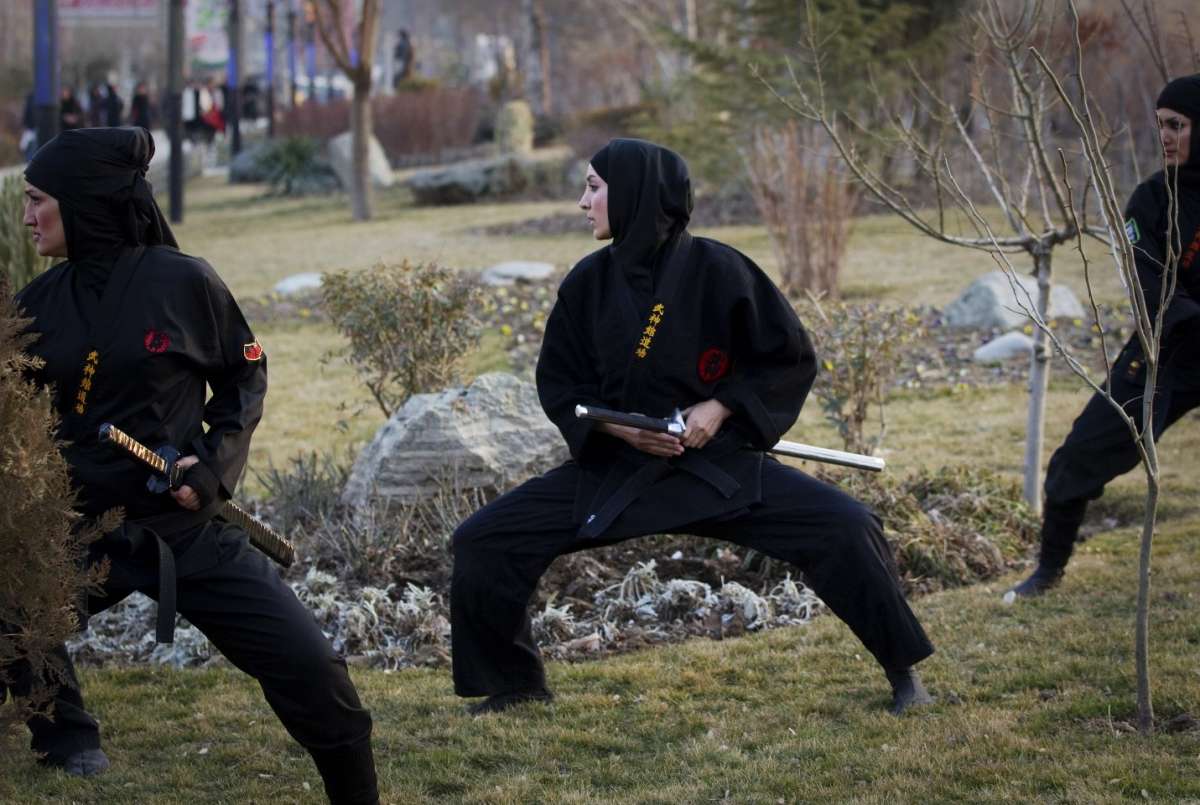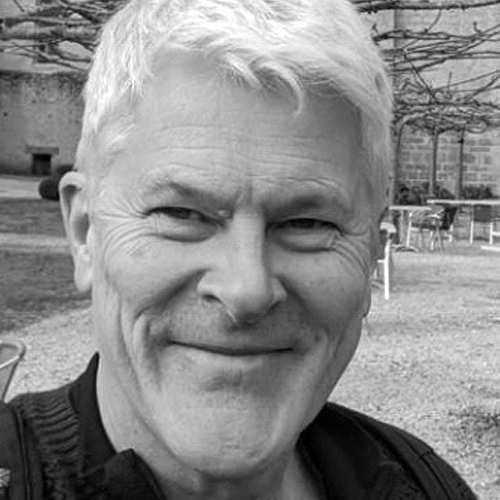- Home
- Ninjutsu In Iran – Developing Respect and Humility, not Budding Assassins
Ninjutsu In Iran – Developing Respect and Humility, not Budding Assassins
No, they aren’t assassins, despite what the world was once told by a careless headline writer. A full decade later the non-story of Iran’s lady ninjas continues to reverberate.

Ninjutsu practitioners participate in a sword drill as members of various Ninjutsu schools showcase their skills to the media at a park in Karaj, Iran. February 13, 2012. Reuters/Caren Firouz
It’s been a decade since Reuters published an infamous photo story of Iranian women practicing the martial art of ninjutsu in the city of Karaj northwest of Tehran. The photos, including the one above, were striking in their elegance and could have been a great way of reminding the world that, despite dress code restrictions, women in Iran are a lot less constrained than many Westerners imagine. Over 3500 ladies use the sport for self-expression, patience and mind-body balance. Alternatively, the report could have highlighted the widespread popularity of martial arts in Iran as a common bond with so many other countries.
However, seeking a more newsworthy angle, the news agency released the story under the more eye-catching headline “Thousands of female Ninjas train as Iran's assassins.” The story was taken up by many other news outlets, including the UK’s Daily Mail which went further, saying entirely speculatively that “these lethal ninjas could be called upon to represent their country if relations descend into military conflict.” In the Washington Post, a blog post extrapolated the story to claim that Iran had a 3500-strong “ninja army.”
The women who had been filmed were understandably furious. They had told the film crew that this was a practice whose key guiding principles were humility and respect. One ninja had been asked if she would defend Iran if it were attacked, and she said, of course – anyone would defend their country. From this, the whole story was pivoted to being about Iran using ninjutsu as a training programme for killers.
Following complaints, the headline was rapidly changed, and the basic story remains online as “Ninjas in Iran.” However, inside the country, the issue escalated. Reuters’ Tehran bureau was essentially suspended, with all of its 11 staff asked to return their media accreditation. Bureau chief Pariza Hafezi was found guilty of “spreading lies against Iran” and faced possible jail time.
Ninjutsu practitioners watch as fellow members of various Ninjutsu schools showcase their skills to the media in a gym at Karaj 45 km northwest of Tehran February 13, 2012. Reuters/Caren Firouz
At the time, the Western press covered the story almost entirely from the angle of Iran restricting press freedom, calling the provocative headline “an error” and suggesting that Iran’s reaction was humourlessly excessive. However, seen from Tehran’s viewpoint, it’s apparent that the headline is just symptomatic of an underlying anti-Iranian attitude in much of the foreign press that casually frames Iran as an enemy nation without ever really explaining to its readers the greater geopolitical context.
As The Atlantic essentially accepted as a footnote in an article which otherwise took the press-freedom line, Iran disproves another of its Western stereotypes – as being anti-female – by its pride in its female ninjas undertaking the strenuous self-discipline of the martial arts. The magazine quipped, “frankly, it looks kind of awesome.”
In May 2013, Reuters was allowed to reopen its Tehran bureau, but to some degree, the twisted angle on the ninja story has never entirely gone away. A decade later, it continues to surface, sometimes presented as though it were established fact. Whether it’s part of a deliberate anti-Iranian antagonism policy or a careless search for clickbait, it’s a depressing misrepresentation of Iran’s legitimate sporting ninjutsu practitioners.






